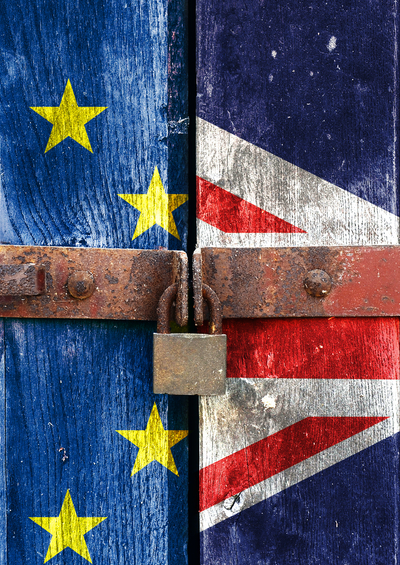Theresa May: A Perfect Symbol for the UK
It isn’t just the UK Prime Minister who is confused about what kind of UK she wants. So is the rest of the country.
June 11, 2017

Theresa May’s key problem in politics – and a key factor in her near-disastrous election result – is that she does not really know who she is. What’s even more critical, she simply does not know what kind of UK she wants.
That uncertainty inside her mind also explains why she is always so eager to appear resolute on the outside. It is a compensation move to mask her uncertainty.
Beyond all the political jockeying that is going on post-election, it is very important to realize one key point: The UK’s entire population is as confused and split-minded about the country’s future direction as the prime minister is herself. In that sense, Mrs. May is actually a remarkably truthful reflection of the mood in the country.
In a nutshell, ever since the day she became Prime Minister a year ago, Theresa May has articulated several different economic and social policy agendas that are essentially mutually exclusive. She just did so again on Friday, when she announced her intent to form a new government.
Trying to please everyone
However, then as now, her attempt to promise nearly everything to everybody makes her look weak. Politically, she puts herself into the position of catching a falling knife – something anybody should avoid at all costs.
In a nutshell, during her premiership so far, Mrs. May has advocated, at various times and with varying intensity, for four different goals: more social inclusion, more sovereignty for the UK, a more global UK and the improvement of the UK economy’s productivity.
These goals, taken by themselves, might well be admirable. And not all of them are mutually exclusive, as one might think at first flush. For example, more emphasis on social inclusion can indeed enhance productivity over the longer term.
It is basically what Germany has always done via its concept of a social market economy. In words that would be music to the ears of Germany’s Social Democrats, she is committed to “make Britain a country that works not for a privileged few, but for everyone.”
One can easily imagine how adamantly opposed quite a few Tories are to such a policy choice. Strongly aligned with business, the party has usually tried to squeeze out more productivity by cutting costs and benefits. That, however, as Theresa May seemed to recognize, is not a long-term strategy.
May: the sovereignty fetishist
As if to assuage the economic conservatives, May also stands for an unrelenting emphasis on Great Britain’s sovereignty. That position comes to her naturally. Theresa May is not just an islander through and through. She is a sovereignty fetishist.
The former Home Secretary was — and is — personally horrified whenever there was an incident of non-UK courts and/or EU authorities weighing in on public life in the UK. This is her equivalent of seeing “black helicopters” in the sky — the oft-used image to describe the horror U.S. conservatives feel about the United Nations.
But Theresa May never explained how such a radically sovereignitist stance is feasible in a day and age where the world is interconnected. And yet, she eagerly advocates for a “Global Britain.”
According to May, her country is anxious to seize any and all opportunities for global trade and connectedness. How and why that would be less sovereignty-impinching than dealing with the EU she does not say.
The only way to reconcile that is to presume, as she and her brand of Brexiteers indeed may presume, that the UK is the decider of the terms of any and all deals it enters. Behind that belief lurks a profound imperial delusion. With the UK much diminished compared to the 19th century, this is pure fantasy.
Europe makes Britain great
Amidst all that, May also wants to firmly focus on increasing the productivity of the UK economy. As much as this policy call – like her desire for better social cohesion – is to be welcomed, she never explained how that goal would be advanced by exiting from the EU. There is a good reason for that – it can’t be explained.
Being closely tied into European supply chains has proven to be a major benefit for the UK’s manufacturing sector. Without that integration, the UK ends up as little more than an island off the continental market.
Moreover, as eager as UK politicians are to herald the strengthening of “our” manufacturing industry, a key reason for that have been sizable investments, in terms of money and skills, which foreign corporations such as VW, BMW and Honda have made in Britain. This also helped spawn, or revitalize, a lot of domestic suppliers.
The EU will play hardball
Unfazed by all these realities, May – who operates very much like a lawyer (even though she didn’t train as one) – apparently believes that she can square circles.
Accordingly, May continues her facile talk that she will be the one to bring home a “bespoke” deal with the EU. Good luck with that. She is bound to come up empty.
Conclusion
It would not just be unfair, but also incorrect to blame the current bout of widespread confusion solely on the hang-by-the-nails Prime Minister. The rest of the country is as confused of Mrs. May herself.
In that sense, she is a rather perfect symbol of her own country that really does not know in which direction to turn. It is sadly split down the middle, much like its big brother, the United States of America.
Takeaways
Theresa May’s key problem in politics is that she does not really know who she is.
Since Theresa May became Prime Minister, she has articulated several policy agendas that are mutually exclusive.
Theresa May is not just an islander through and through. She is a sovereignty fetishist.
Following Theresa May’s near-defeat, the EU 27 are going to be even less prepared to make nice.
The UK is sadly split down the middle, much like its big brother, the United States of America.

